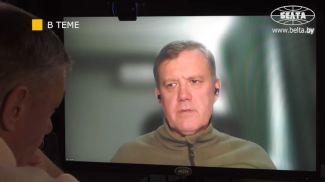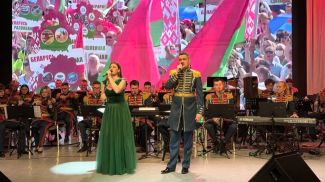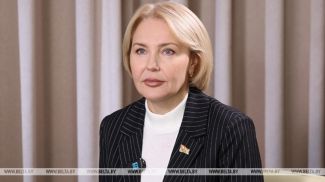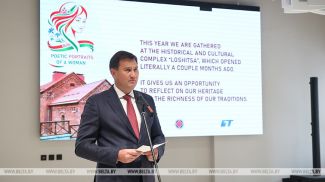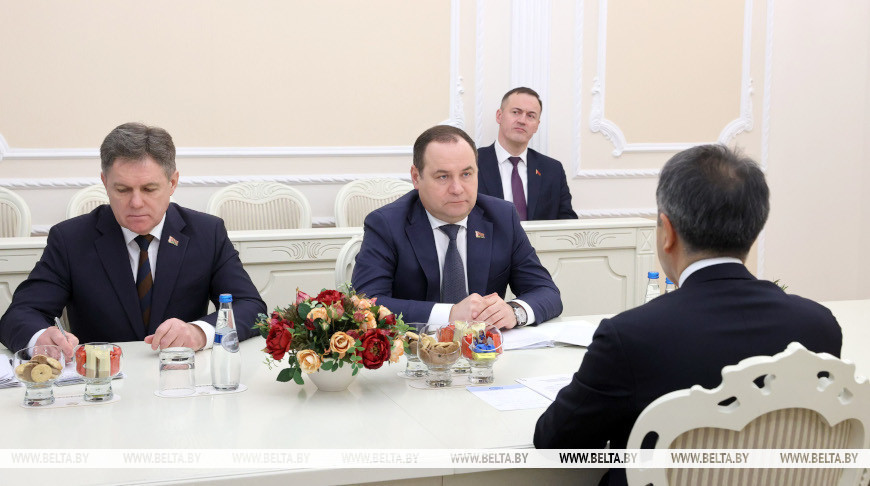
MINSK, 26 February (BelTA) – Belarusian Prime Minister Roman Golovchenko outlined the tasks which need to be solved within the Eurasian Economic Union (EAEU) until 2025 as he met with Chairman of the Board of the Eurasian Economic Commission Bakytzhan Sagintayev in Minsk on 26 February, BelTA has learned.
“We have a number of tasks that we have to solve as part of Eurasian integration until 2025. These are quite complex issues, including integration cooperation in energy and energy security. Technical regulation is also quite an important topic. We need to protect the EAEU market from third-country products, especially those with unconfirmed safety. The media often report on low-quality goods that enter our common market and then move freely inside it. This is primarily an issue of health and safety of our citizens,” Roman Golovchenko said.
According to him, delaying the adoption of some technical regulations is not acceptable in the current situation. “In my opinion, the EEC commissions should be more principled here,” Prime Minister emphasized.
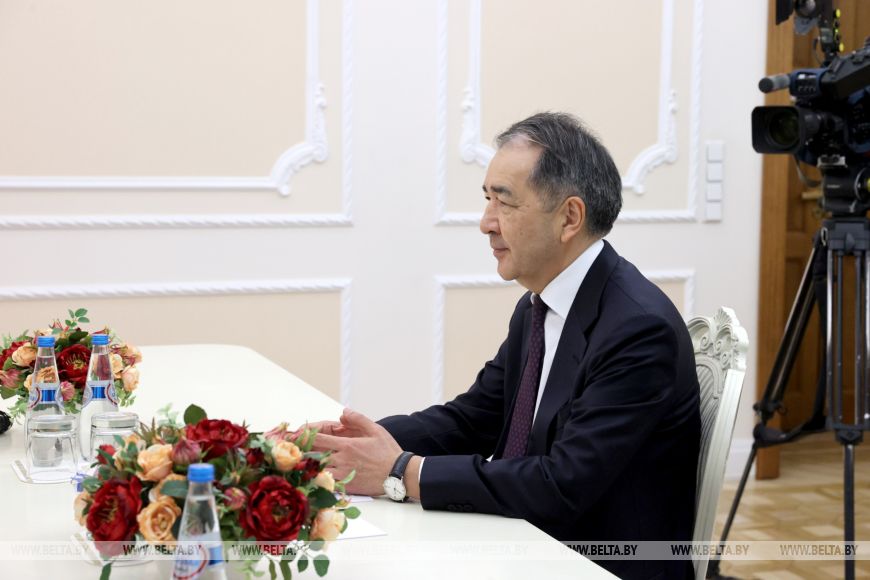
The issuance of electronic passports for self-propelled vehicles and other types of equipment is also viewed as important. “An action plan has been adopted to improve the structure of the electronic passport system. The parties to this process have different understanding of how to move forward. We are sure that it is necessary to fulfill the plan, which has been adopted to improve this structure,” Roman Golovchenko said.
According to the prime minister, the EAEU ‘slightly moved away’ from the biological safety issue. Kazakhstan had previously advocated for this topic to be considered within the CSTO. According to the Belarusian head of government, the EAEU is the most appropriate platform to address this issue. “We should not leave this issue behind. We have been talking about it since 2021, but so far no solution has been found. There is no active work within the CSTO, either. I think we need to have this issue finally resolved,” he emphasized.
As for the digital agenda in the EAEU, Roman Golovchenko stressed that this is the toolkit, the mechanism that is designed to implement agreements on seamless transactions, movement of goods, services, cargo, and so on. “Unfortunately, the pace is also slow here. The number of common processes to which all countries are connected is low - about a quarter of the total. We need to move further in this direction,” he added.
“Industrial cooperation is the practical component of our Eurasian integration, where the participating countries will be able to realize their potential in full. Decisions on financial support for such initiatives have already been taken,” the prime minister said. “In particular, Belarus has initiated a project to develop a Eurasian electric bus. Such a project can be quick in implementation and will demonstrate our integration capacity in industry. This is one of the main goals for which our union was set up,” he said.





